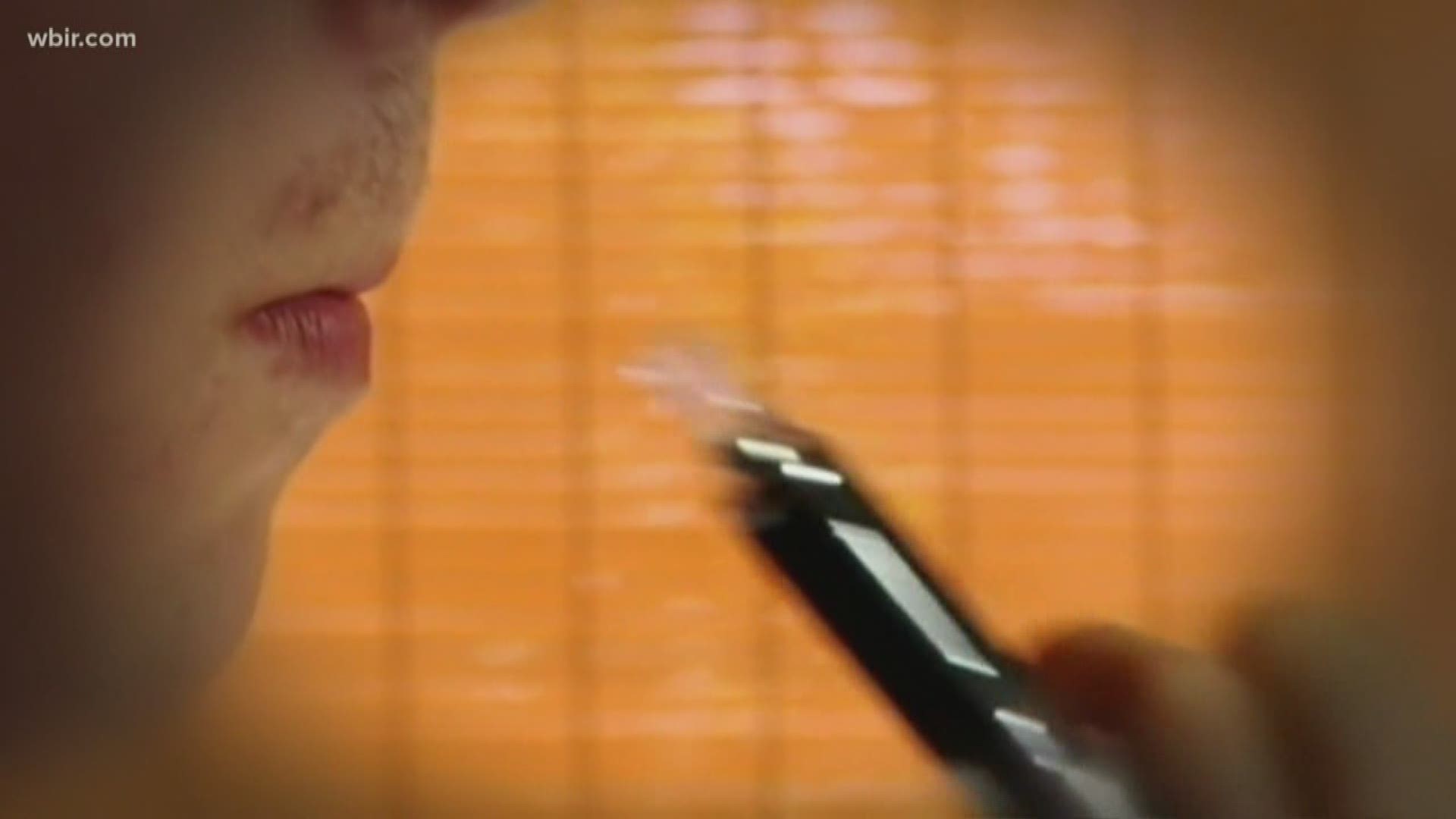Several healthcare organizations in Tennessee are calling on the governor and other state lawmakers to take action as the number of vape-related respiratory illnesses cases in the state and U.S. continue to grow.
The Tennessee Medical Association, a healthcare advocacy group in Nashville, said it and 15 other healthcare chapters in the state are asking lawmakers to consider a statewide ban of flavored vaping products.
In a letter to Gov. Bill Lee, the groups said they are specifically concerned with vaping use among teens amid the larger national outbreak.
"Tennessee physicians are most concerned that products like Juul and others are disproportionately marketed to, purchased and used by younger consumers, including adolescents. Some are even packaged like juice boxes, candy or other kids’ products," it said. "Many organizations within the healthcare industry are encouraging youth not to vape and physicians are reporting suspected cases to TDH and CDC, but we can and must do more in Tennessee to protect youth now."
The Tennessee Medical Association House of Delegates passed a resolution to ban the sale of flavored vape products in the state. The organizations said they hope the General Assembly will take up the issue when it convenes in 2020.
"We have a clear and immediate opportunity to take action now to prevent another generation of Tennesseans from becoming addicted to nicotine and its consequent illnesses."
As of October 3, 1,080 lung injuries associated with vaping have been reported in the U.S., and 39 of those cases were from Tennessee.15 states have reported 18 deaths linked to the outbreak.
The Centers for Disease Control said most patients reported a history of using THC-containing products, and it's latest findings suggest THC-containing products are playing a role in the outbreak.
However, the CDC said no single product has been linked to all cases, and said the outbreak of illnesses are occurring in a 'dynamic marketplace' for vaping products that may have a mix of ingredients, complex supply chains and potentially illicit substances. It also notes these products can potentially be modified, particularly when bought online or off the street.
Those within the vaping industry said reputable businesses are being hurt, saying they believe the cause to be squarely on unregulated and illicit activities, and that they are falling victim to false claims circulating about vaping as the investigation into the outbreak continues.
"We are getting severely punished for bootleggers getting illegal products and selling them on the black market and [to] kids," AMV Holdings CEO Sam Salaymeh said.
Salaymeh said he believes stores shouldn't sell to kids or non-smokers, offering recommendations like asking retailers to use age-verification technology to help curb the youth vaping epidemic.
According to the FDA's 2018 National Youth Tobacco Survey, e-cigarette use among teens continues to grow rapidly. The FDA said 1.5 million more middle and high school students reported using e-cigarettes between 2017 and 2018.
68% of high school students said they used flavored e-cigarettes, and the FDA said e-cigarette use also led to an uptick in overall tobacco use in 2018 --reversing previous declines as cigarette and cigar use remained relatively the same.

